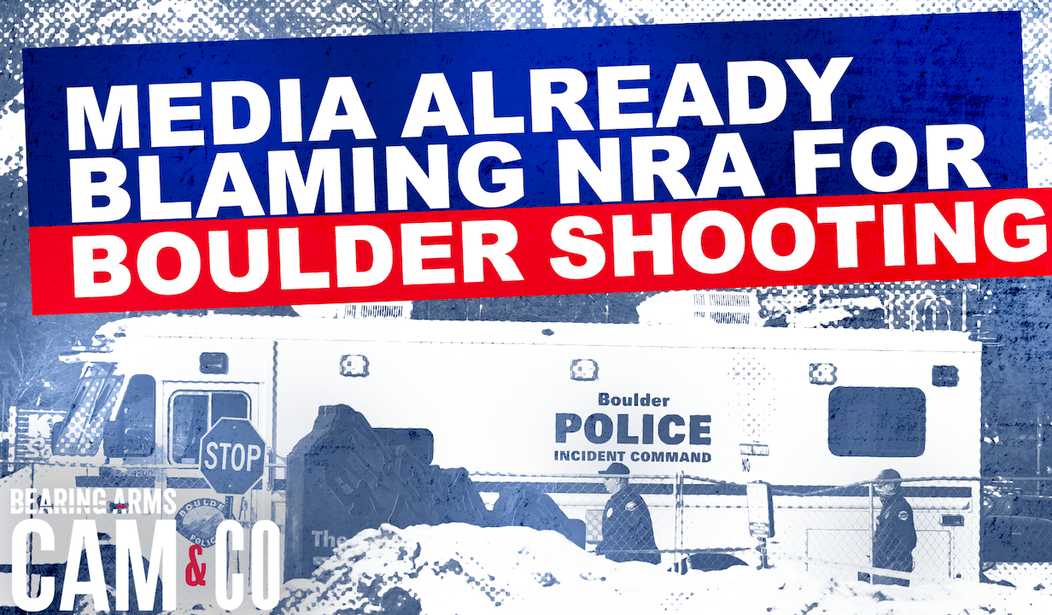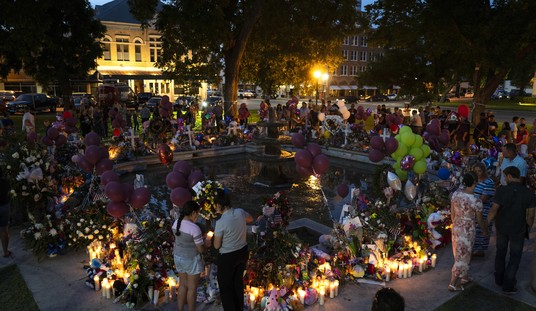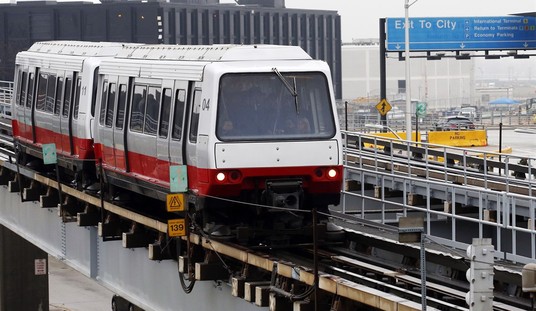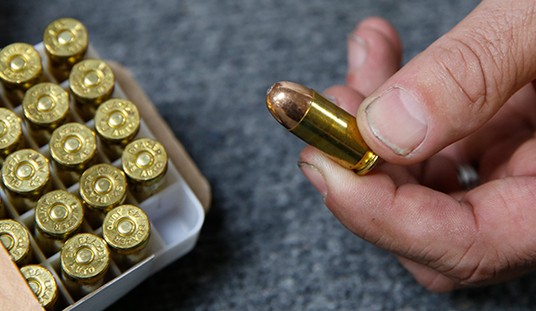This morning I noted that several media outlets, including the New York Times and the Washington Post are trying to make the case that if Boulder, Colorado’s ban on so-called assault weapons had not been struck down by a state judge a couple of weeks ago, the shootings that killed ten people at a King Sooper grocery store may not have happened. On today’s Bearing Arms’ Cam & Co we take a closer look at an even more explicit claim by Denver alt-weekly WestWord, which tries to blame the NRA for the attack carried out on Monday afternoon.
In a piece entitled “How the NRA Helped Make King Sooper Shooter’s Assault Rifle Legal”, reporter Michael Roberts largely glosses over the fact that the city’s local ordinance requiring those who own modern sporting rifles to either get rid of them or “certify” (i.e. register) them with the city was clearly in violation of the state’s firearm preemption statute. That’s seemingly far less than important than pointing out that the NRA was supportive of the lawsuit that challenged the legality of the gun ban. If it weren’t for the NRA, Roberts implies, maybe the attack would never have taken place.
Such armaments were prohibited in Boulder in 2018, but they just became legal again on March 12. And the organization that deserves a large slice of either the credit or the blame (depending on your point of view) for this development is the National Rifle Association, which supported the lawsuit that doomed the Boulder law.
No matter how much Roberts tries to spin this, the fact is that Boulder didn’t have the authority under state law to enact its own ban on firearms and magazines, which was made clear by the judge’s opinion striking down the law and ordering a permanent injunction in place to prohibit enforcement of the measure. The NRA may have been supportive of the case, but it wasn’t a party to the lawsuit. Even if it had been a named plaintiff, however, the fault ultimately lies with the city of Boulder for enacting a gun ban without the authority to do so.
Authorities have not revealed when the King Soopers shooter obtained his patrol rifle — whether it was during the period when Boulder’s ban was in effect, or if he bought it during the ten days after the ban was lifted. But there’s no question that when he was using that firearm to take so many lives, such a weapon was legal to possess in Boulder.
The biggest problem with Roberts’ argument is that the suspect in this case didn’t live in Boulder. He was a resident of Arvada, Colorado; a Denver suburb located about 20 minutes south of Boulder. The city’s local gun ban wouldn’t have been a factor even had it not been struck down by a judge, because as a non-resident, the suspect wouldn’t have been subject to its requirements barring ownership of unregistered rifles.
While Boulder’s ban also made the open carrying of firearms a misdemeanor offense, it defies the imagination to believe that the suspect would have paid heed to the local ordinance, given that he was willing to violate local, state, and federal prohibitions on homicide.
The press is becoming fixated on Boulder’s gun ban even as they ignore the fact that the state of Colorado has repeatedly put new control laws on the books since the Aurora theater shooting in 2012. The following year then Gov. John Hickenlooper approved measures imposing universal background checks and limiting magazine capacity to 15-rounds. Since then, a number of additional gun control laws have been approved, including a “red flag” firearms seizure law that allows police and family members to petition the courts for the removal of firearms from those deemed to be a danger to themselves or others.
And since 2013, when the first gun control measures were signed into law, violent crime in Colorado has increased every single year. As Denver TV station ABC-7 reported back in 2019:
For the fifth-straight year, Colorado has seen an increase in violent crime, according to a report from the Colorado Bureau of Investigation released Wednesday.
There was a 7.95% increase in the category of violent crime in 2018 compared to 2017, with more than half of last year’s violent crime reports falling into the category of aggravated assault, the report read.
Crime rose in 2019 as well, and two weeks ago the Colorado Bureau of Investigation released its data for 2020, showing an even larger spike was recorded last year.
Violent crime categories surged in 2020 as well, increasing by 6.52% in 2020.
About one person more was killed every week in 2020 than in 2019. Colorado saw a 29% jump in murders and non-negligent manslaughters in 2020, from 227 in 2019 to 292 last year.
There were also 2,400 more aggravated assaults in 2020, a 17.4% year over year increase. Likewise, robbery increase 6.5%.
If the media wants to talk about gun control laws in Colorado, they shouldn’t simply focus on the local gun ban in Boulder that was ruled to be a violation of state law. Instead, they should also point out the gun control laws that have been in force for nearly a decade, but have failed to prevent the state from becoming a more dangerous place. Of course, for anti-gun activists and their media allies, the failure of one gun control law is simply an argument for more gun control measures, and that’s exactly what Democrats from Joe Biden on down are now demanding.
It’s always the next restriction on the rights of Americans that will make us safer, or so they promise.










Join the conversation as a VIP Member